 Your new post is loading...

|
Scooped by
Edumorfosis
|
Despite the immense potential of increasingly sophisticated Artificial Intelligence (AI) to boost performance, efficiency, growth, and customer experiences, not all organizations are ready to enjoy AI’s benefits.
In sectors such as healthcare, pharma, biotech, manufacturing, and finance, some organizations struggle to build the powerful, unified infrastructure they need to manage AI’s steep processing, data, and security demands of applying reliable large language models (LLMs). Most also lack the necessary expertise to build AI-driven strategy and keep pace with compliance changes.

|
Scooped by
Edumorfosis
|
Generative AI doesn’t exist in a vacuum. The rapid advancements we’ve seen in generative AI over the past year or so have been made possible by other tech breakthroughs. Cloud computing, for example, democratizes access to AI technologies. 5G amplifies the potential of generative AI by facilitating real-time analytics and AI processing. And the Internet of Things provides a rich source of data for generative AI models to mine.

|
Scooped by
Edumorfosis
|
Artificial Intelligence (AI) is rapidly transforming the workplace, with profound implications for how executives and workers navigate their career paths. As it continues to revolutionize industries, business leaders stress the urgency of acquiring AI-related skills. A staggering 87% of managers struggle to find staff with AI capabilities, while 79% of C-suite executives fear being unprepared for the future without AI knowledge.

|
Scooped by
Edumorfosis
|
Throughout history, creating a complete piece of music has always been a human process. There have been attempts to compose and render songs using computers before, but frankly they weren't great.
Today, that all changes with two AI music platforms. Udio and Suno. In this episode, we'll take a look at both and talk to experts like Rick Beato to see what this means for the future of the music industry.

|
Scooped by
Edumorfosis
|
The OpenAI and Sam Altman saga was one of the most debated in years. And for good reason: AI and the future of the companies bringing us these tools impact us all.
Knowing the massive impact AI will have on the future of work, we set out to understand how much knowledge workers are familiar with Generative AI tools, how often they use them, and which tools are most popular.
Leaders who want their teams to focus on what matters have shifted to AI early on to offload manual, repetitive tasks that can be easily automated. How about the rest?

|
Scooped by
Edumorfosis
|
With the weekly drumbeat of generative AI advancements and corporate leaders signaling the need for their organizations to harness the power of AI, larger questions are emerging for these same executives to address.
In addition to the ethical challenges that AI presents for their customers, employees, and society, companies must grapple with how AI will fundamentally shift their operating model, including the workforce. Almost two-thirds (65%) of American executives believe generative AI will have a high or extremely high impact on their organization in the next three to five years, but 60% say they are still one to two years from deploying their first GenAI solution, per a recent KPMG survey.

|
Scooped by
Edumorfosis
|
La IA Generativa (GenAI) es un término amplio que describe cualquier tipo de inteligencia artificial (IA) capaz de producir nuevos textos, imágenes, vídeos o clips de audio. Técnicamente, este tipo de IA aprende patrones a partir de datos de entrenamiento y genera nuevos resultados únicos con las mismas propiedades estadísticas.
Los modelos de IA Generativa utilizan indicaciones para guiar la generación de contenidos y emplean el aprendizaje por transferencia para ser más competentes. Los primeros modelos de IA Generativa se crearon pensando en tipos de datos y aplicaciones específicos. Por ejemplo, DeepDream de Google se diseñó para manipular y mejorar imágenes. Puede producir efectos visuales nuevos y atractivos, pero el desarrollo del modelo se centró principalmente en el procesamiento de imágenes, y sus capacidades no se aplican a otros tipos de datos.

|
Scooped by
Edumorfosis
|
When it comes to artificial intelligence, what are we actually creating? Even those closest to its development are struggling to describe exactly where things are headed, says Microsoft AI CEO Mustafa Suleyman, one of the primary architects of the AI models many of us use today. He offers an honest and compelling new vision for the future of AI, proposing an unignorable metaphor — a new digital species — to focus attention on this extraordinary moment.

|
Scooped by
Edumorfosis
|
Today, we’re taking a major step toward our vision for a more open computing platform for the metaverse. We’re opening up the operating system that powers our Meta Quest devices to third-party hardware makers, giving developers a larger ecosystem to build for and ultimately creating more choice for consumers. This platform is the product of a decade of investment into the underlying technologies that enable mixed reality, and opening it up means a lot more people will benefit from that investment. We’re working with leading global technology companies to create a new ecosystem of mixed reality devices, and we’re making it even easier for developers to build mixed reality apps.

|
Scooped by
Edumorfosis
|
Un nuevo estudio publicado por la Universidad de Stanford asegura que la inteligencia artificial ha alcanzado unos niveles de rendimiento que superan las capacidades humanas en toda una serie de tareas. Es decir, en este sentido los modelos de IA ya habrían superado a los humanos en la clasificación de imágenes hace casi 10 años.

|
Scooped by
Edumorfosis
|
The age of artificial intelligence (AI) is here, and it promises to reshape the workforce as we know it. This transformative technology—on par with the personal computer or the internet—is filtering into every industry and business function, fundamentally changing how companies operate. Used effectively, automation offers the prospect of greater productivity, lower costs, and new sources of competitive advantage. Yet, for all its promise, AI’s potential is wasted if enterprises lack the skilled talent to harness it. Business leaders understand that to stay ahead, they must view AI not just as a tool, but also as a strategic imperative. However, according to a recent survey by edX, they’re struggling to recruit AI-savvy staff—and despite recognizing a looming skills gap, companies are falling short on providing AI training. As things stand, today’s workforce is at risk of not evolving as quickly as the technology that underpins it.

|
Scooped by
Edumorfosis
|
The 2024 Index is our most comprehensive to date and arrives at an important moment when AI’s influence on society has never been more pronounced. This year, we have broadened our scope to more extensively cover essential trends such as technical advancements in AI, public perceptions of the technology, and the geopolitical dynamics surrounding its development. Featuring more original data than ever before, this edition introduces new estimates on AI training costs, detailed analyses of the responsible AI landscape, and an entirely new chapter dedicated to AI’s impact on science and medicine.
The AI Index report tracks, collates, distills, and visualizes data related to artificial intelligence (AI). Our mission is to provide unbiased, rigorously vetted, broadly sourced data in order for policymakers, researchers, executives, journalists, and the general public to develop a more thorough and nuanced understanding of the complex field of AI.

|
Scooped by
Edumorfosis
|
Technological change is a good thing. It has brought exponential gains to living standards and is the foundation of modern society. Yet unmanaged technological change has always come with risks and disruptions. With another technological wave driven by Generative AI on the horizon, these experiences show that policymakers should explore risks and benefits before deployment becomes widespread. Generative AI can be economically disruptive through its impact on wage inequality, wealth inequality and potential job displacement. In other words, there will be winners and losers. In this report we examine what policy's role in the future of AI could be.
|

|
Scooped by
Edumorfosis
|
The world of work is in full metamorphosis, forever changed by the seismic shifts of the past few years and accelerated by the imminent human-machine teaming revolution. Just as organizations were settling into a new normal – with a focus on hybrid working, comprehensive health and well-being, digitalization, and upskilling – Generative AI (Gen AI) burst onto the scene. Changing not only how people work but the work experience itself, Gen AI has been met with equal measures of unease and excitement. Will it produce a real productivity lift? Can the increased risk exposure be effectively managed, and is it worth it? What will be the permanent impact on the competitive landscape? These are the conversations dominating boardrooms and team chats, with one universal truth emerging: Unlocking the potential of this new world of work means keeping people at the heart of the transformation agenda. There is no escaping the need for new ways of working and new ways to value workers. The societal dynamics emanating from the last few years (including louder calls for fair pay, better working conditions, and less environmental impact) are aggressively reshaping the work contract. Leading companies are rethinking their People practices and leveraging greater talent science to ensure a more sustainable, equitable and intuitive work experience. The urgency is coming from all stakeholders. Two in five workers believe that the world of work is fundamentally broken and one in four wish they didn’t have to work at all. People crave the peace of mind that comes with job security and financial well-being – staples that become increasingly important during times of upheaval. Executives are also seeking solid ground, focused on keeping their business running by addressing inflation, digital acceleration, and alternative work models. Climate concerns are hitting closer to home as more frequent extreme weather events impact business continuity. Cyber risk has been bumped from its top spot in 2022, and significantly fewer executives are accounting for an overall heightened risk environment in their plans. HR remains anxious about rising labor costs, managing a remote workforce, and skills shortages. And 89% of asset managers see an engaged workforce as a key driver of company value.

|
Scooped by
Edumorfosis
|
Traditional marketing approaches sometimes fall short when it comes to captivating consumers and making a lasting impression on brands.
However, virtual reality (VR) technology has just emerged, providing companies with a potent weapon that may transform their advertising strategies. Startups may make a lasting impact on their target audience by using VR's immersive and interactive nature to create fascinating experiences.

|
Scooped by
Edumorfosis
|
La inteligencia artificial está transformando profundamente la manera en que interactuamos con la tecnología. Se abre un paradigma nuevo en la forma de trabajar, crear y desarrollar cualquier tipo de contenido y, por lo tanto, surge la necesidad de desarrollar nuevas habilidades para trabajar con ella.
Al mismo tiempo, resulta conveniente revisar el conjunto de conocimientos y destrezas que los humanos hemos empleado hasta ahora para trabajar e identificar cuáles de ellas persisten, cuáles caducan y cuáles debemos potenciar.

|
Scooped by
Edumorfosis
|
Los profesionales de cuello blanco, aquellos que tienen un nivel educativo y unos salarios más altos, serán quienes se verán más afectados por la generalización de la Inteligencia Artificial generativa IAG, al contrario de lo que sucedió en anteriores revoluciones cuyas consecuencias impactaron de manera más notoria en los trabajadores sobre todo manuales, según recoge un informe de la Agencia Vasca de Innovación Innobasque.

|
Scooped by
Edumorfosis
|
Up to 85% of the jobs that today's college students will have in 11 years haven't been invented yet. That's according to a panel of experts assembled by the Institute for the Future, although an exact percentage is impossible to predict.
The IFTF, a nonprofit that seeks to identify emerging trends and their impacts on global society, forecasts that many of the tasks and duties of the jobs that today's young people will hold in 2030 don't exist right now.

|
Scooped by
Edumorfosis
|
The workplace, in particular, is in an ongoing state of evolution. For many businesses, the Covid-19 pandemic was a catalyst for massive change that’s still ongoing. And artificial intelligence – particularly the new generative AI tools – are already changing many aspects of day-to-day work across various industries and professions.
Of course, ten years is a big jump forward, and it’s hard to say anything about what life will be like by then with 100 percent certainty. But by extrapolating what’s going on today and imagining how wider societal changes could continue to impact our lives, we can take an educated guess. These are some of the trends I think could be on the agenda as we move into the second half of the next decade.

|
Scooped by
Edumorfosis
|
Hace unos años que la Inteligencia Artificial desembarcó en la sociedad, irrumpiendo con fuerza y con miras de hacerse un hueco en diversos sectores. Ahora es ya una realidad en muchos ámbitos, donde ha ganado especial relevancia dentro de las empresas y en su impacto económico en el PIB. El director de Microsoft España, Alberto Granados, ha explicado cuáles son los retos de las empresas y la sociedad en general en cuanto a la Inteligencia artificial, hacía donde vamos y qué estrategias y medidas hay que tomar en la actualidad.

|
Scooped by
Edumorfosis
|
Artificial intelligence (AI) is rapidly transforming the workplace, with profound implications for how executives and workers navigate their career paths. As it continues to revolutionize industries, business leaders stress the urgency of acquiring AI-related skills. A staggering 87% of managers struggle to find staff with AI capabilities, while 79% of C-suite executives fear being unprepared for the future without AI knowledge.

|
Scooped by
Edumorfosis
|
En cuanto a los mitos y realidades, Sergio explicó que la IA en realidad no es inteligencia, porque su fin es solo la eficiencia. La eficiencia, según él, podría ser definida como «hacer más con lo mismo, o hacer lo mismo con menos». Por lo tanto, la IA no debe considerarse más que una herramienta utilizada para aumentar la eficiencia.

|
Scooped by
Edumorfosis
|
It’s official. After three years, the AI Act, the EU’s new sweeping AI law, jumped through its final bureaucratic hoop last week when the European Parliament voted to approve it. (You can catch up on the five main things you need to know about the AI Act with this story I wrote last year.)
This also feels like the end of an era for me personally: I was the first reporter to get the scoop on an early draft of the AI Act in 2021, and have followed the ensuing lobbying circus closely ever since.

|
Scooped by
Edumorfosis
|
In November 2022, OpenAI released ChatGPT. Less than 18 months later, the subject of generative AI dominates almost every sphere of life, public and private. Policymakers talk about it; economists talk about it; social scientists, parents, teachers, and investors talk about it.

|
Scooped by
Edumorfosis
|
The recent sustained slowdown in growth has been compounded by a succession of crises and dislocations. These crises have raised questions not just about the stability of prevailing approaches to stimulating economic growth, but about the goals and values underpinning it.
It is now more than 15 years since the beginning of the global financial crisis, but it continues to cast a shadow, not least in the policy choices of many advanced economies. The COVID-19 pandemic and the shock of lockdowns, left behind an aftermath of a surge in public debt levels and reversal of global development progress. Geopolitical tensions and conflicts have further reshaped an increasingly multipolar international order, with far-reaching implications for technology, growth and development.
Overshadowing these developments is the growing awareness that the world’s rising temperature poses grave dangers to the
long-term prospects for humanity, with the world currently on track for a temperature rise significantly above the targets set out in the Paris Agreement in 2015. In parallel, polarization and mistrust is growing in many societies, with only 50% of people trusting governments and only 41% trusting government leaders.
All of this has taken place against – and has also frequently contributed to – a backdrop of increasing global contention over economic policies, norms and structures. The extent to which there was previously agreement on these matters should not be overstated, with older prescriptions for growth, including the so-called “Washington consensus”, having broken down before the global financial crisis had erupted.
But the forces of change have intensified over the past two decades, in particular as politics in many advanced economies have fractured, as the power and resources of emerging economies have increased, and as many leaders across the world have sought to strengthen national economic policy-making as a counterweight to the political and economic effects of globalization.
The work in this report starts from two key premises. The first is that economic growth is an essential policy objective and a key prerequisite for improving living standards and making progress on almost any other policy agenda. The second is that growth policy is an inherently normative exercise, with tradeoffs and synergies. As such, there will inevitably be disagreements on these normative considerations.
|

 Your new post is loading...
Your new post is loading...









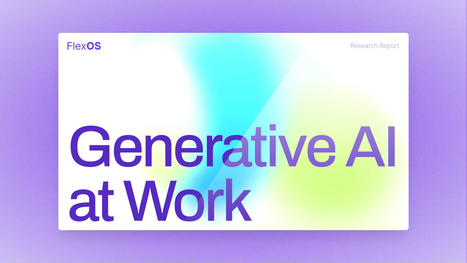

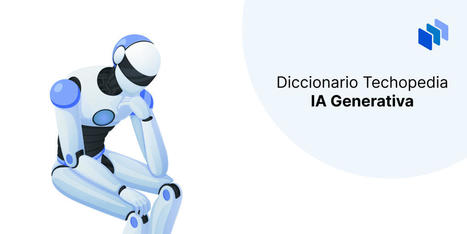
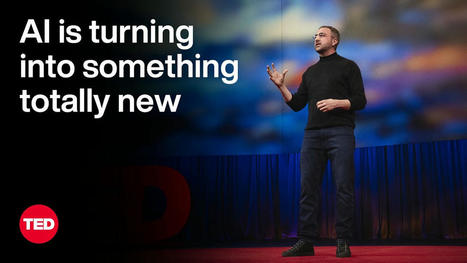
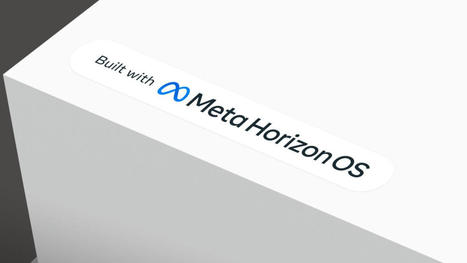


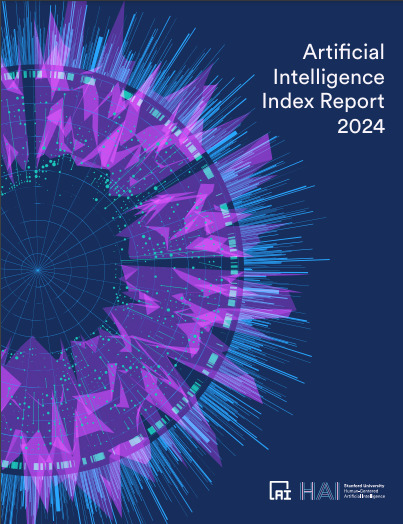
![[PDF] Transformed by AI: GenAI could affect work in the UK | Edumorfosis.Work | Scoop.it](https://img.scoop.it/Ng4hucIa-q71NVFBw1CaMDl72eJkfbmt4t8yenImKBVvK0kTmF0xjctABnaLJIm9)
![[PDF] Global Talent Trends Report 2024 | Edumorfosis.Work | Scoop.it](https://img.scoop.it/Qw21Eytry5efPB48U9iZIDl72eJkfbmt4t8yenImKBVvK0kTmF0xjctABnaLJIm9)





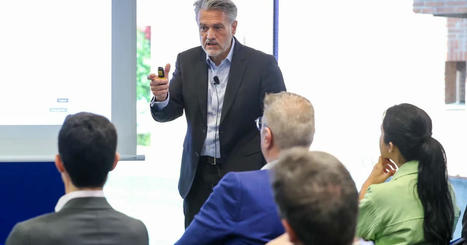

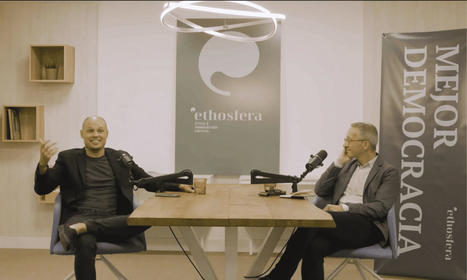


![[PDF] The Future of Growth Report 2024 | Edumorfosis.Work | Scoop.it](https://img.scoop.it/MpGs0gkUL51cQxevcExmIzl72eJkfbmt4t8yenImKBVvK0kTmF0xjctABnaLJIm9)




